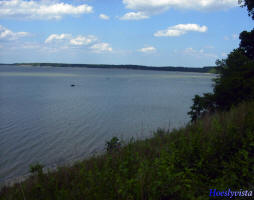 INTERREG IVC eco-innovation analysis offers handy hints to regional policymakers
INTERREG IVC eco-innovation analysis offers handy hints to regional policymakers
Regional policymakers seeking the best way to boost eco-innovation in the context of the implementation of European Union cohesion policy from 2014-2020 - and the associated European Structural and Investment Funds - could benefit from a recent analysis of eco-innovation projects that were carried out under the auspices of the EU's 2007-2013 INTERREG IVC programme.
INTERREG IVC supported projects that brought regions together and enabled them to share knowledge on a range of themes. Of the 204 projects sponsored between 2007-2013, seven dealt with eco-innovation. In total, regions from 21 EU countries plus Norway participated in one or more of the eco-innovation projects.
The seven projects focused on a variety of issues, including the construction sector, road transport, eco-management in companies and regional support for eco-innovation. The analysis, published by the INTERREG IVC programme, notes that the projects assessed 110 good practices in these areas. INTERREG IVC defines a good practice as an initiative that has already proved successful (meaning it has generated tangible and measurable results) and which has the potential to be transferred to a different geographic area.
The projects and the associated good practices therefore comprise a handy library that regional policymakers can refer to when looking to pursue an eco-innovation strategy in their own region. Policymakers will also be pleased to hear that most of the good practices are non-financial, though some deal with grants and subsidies. The good practices can be categorised as policy instruments, support tools and technical solutions.
Specific issues covered by the good practices include sustainable construction codes and standards, voucher systems to support companies looking for outside help on resource efficiency, roll-out of electric vehicle charging infrastructure, creating cleantech clusters and land-use planning that balances environmental, economic and social priorities.
The INTERREG IVC analysis concludes that regional authorities should prioritise eco-innovation because it is important for building competitive and sustainable regional economies. Regions should therefore “place eco-innovation at the core of their smart specialisation strategies and regional operational programmes in light of the next programming period of European funding.”Regional policymakers should also think broadly; eco-innovation is about environmental technologies, but it is also about new, more sustainable business models and ways of thinking, and can therefore be applied across different economic sectors. An effective policy should be evidence-based and founded on an analysis of what has worked best so far - including the experience from the INTERREG IVC programme.
More information
-
The INTERREG IVC Thematic Programme Capitalisation Analysis report on Eco-Innovation is available at http://www.interreg4c.eu/good-practices/capitalisation/overview3/eco-innovation/
| Contact information | n/a |
|---|---|
| News type | Inbrief |
| File link |
http://ec.europa.eu/environment/ecoap/about-eco-innovation/good-practices/eu/interreg-ivc-eco-innovation-analysis-offers-handy-hints-to-regional-policymakers_en.htm |
| Source of information | EC DG Environment |
| Subject(s) | AGRICULTURE , ANALYSIS AND TESTS , CHARACTERISTICAL PARAMETERS OF WATERS AND SLUDGES , DRINKING WATER , DRINKING WATER AND SANITATION : COMMON PROCESSES OF PURIFICATION AND TREATMENT , ENERGY , FINANCE-ECONOMY , HEALTH - HYGIENE - PATHOGENIC MICROORGANISM , HYDRAULICS - HYDROLOGY , INDUSTRY , INFORMATION - COMPUTER SCIENCES , INFRASTRUCTURES , MEASUREMENTS AND INSTRUMENTATION , METHTODOLOGY - STATISTICS - DECISION AID , NATURAL MEDIUM , POLICY-WATER POLICY AND WATER MANAGEMENT , PREVENTION AND NUISANCES POLLUTION , RIGHT , RISKS AND CLIMATOLOGY , SANITATION -STRICT PURIFICATION PROCESSES , SLUDGES , TOOL TERMS , TOURISM - SPORT - HOBBIES , WATER DEMAND , WATER QUALITY |
| Geographical coverage | n/a |
| News date | 19/06/2014 |
| Working language(s) | ENGLISH |
 you are not logged in
you are not logged in





